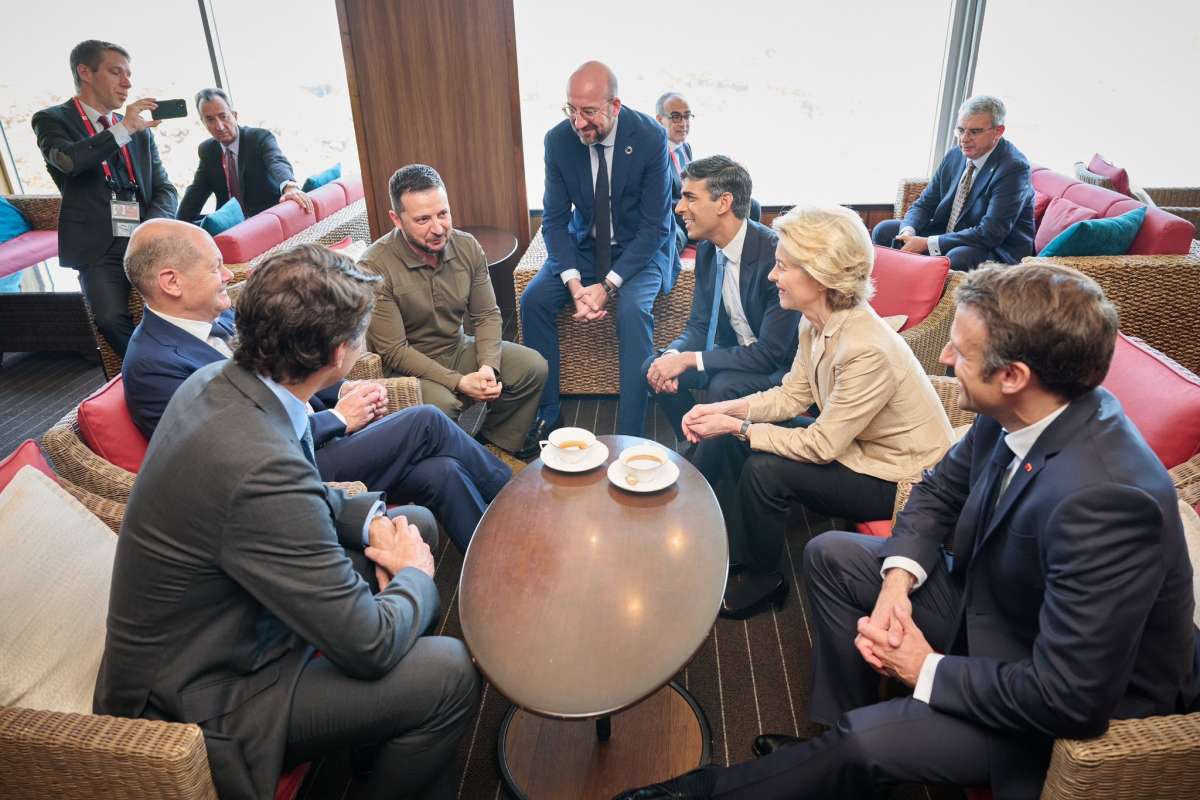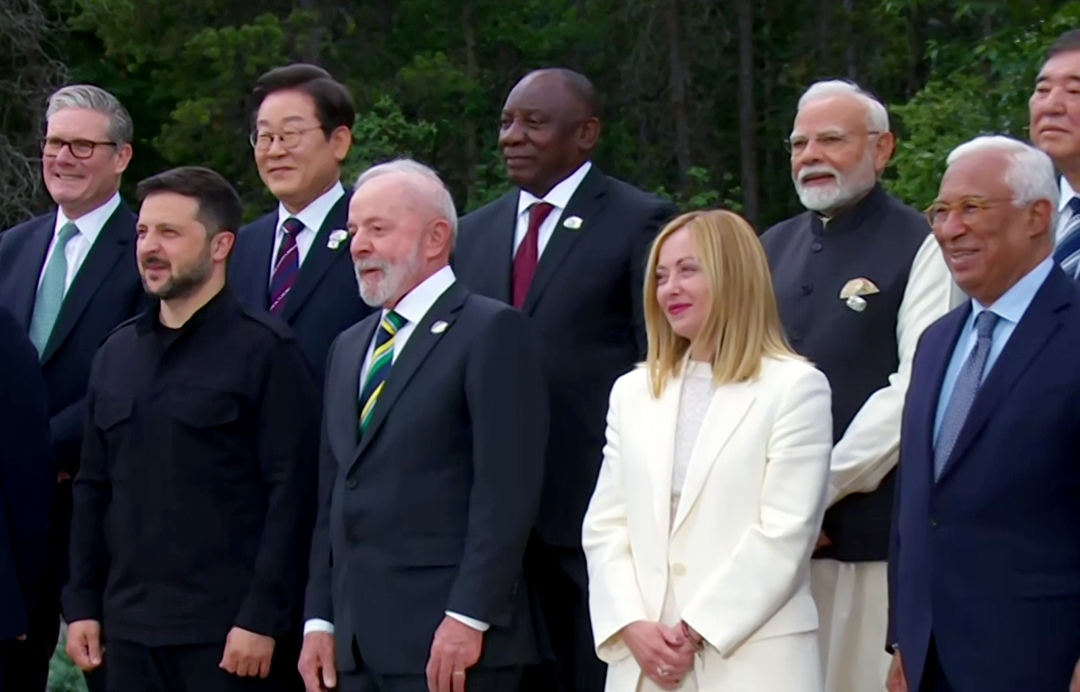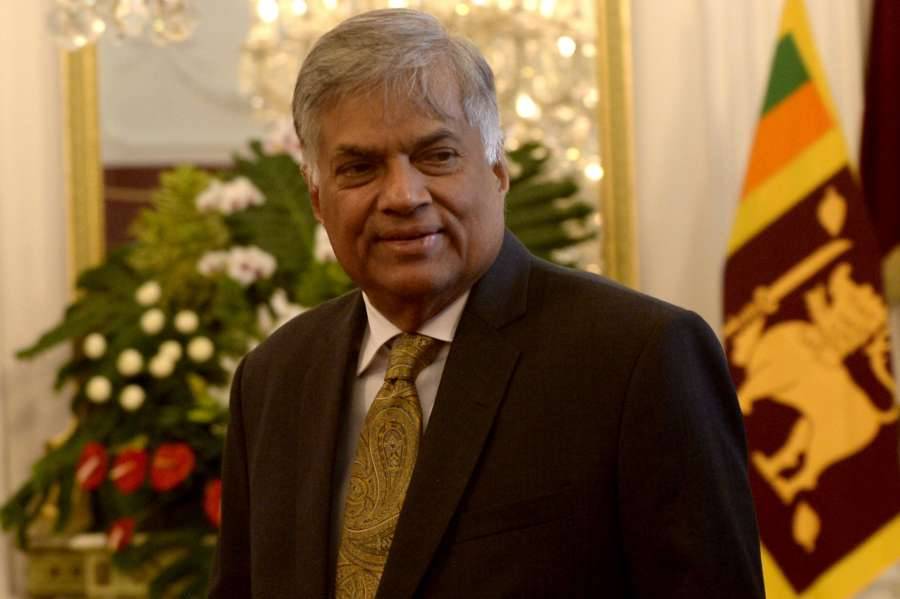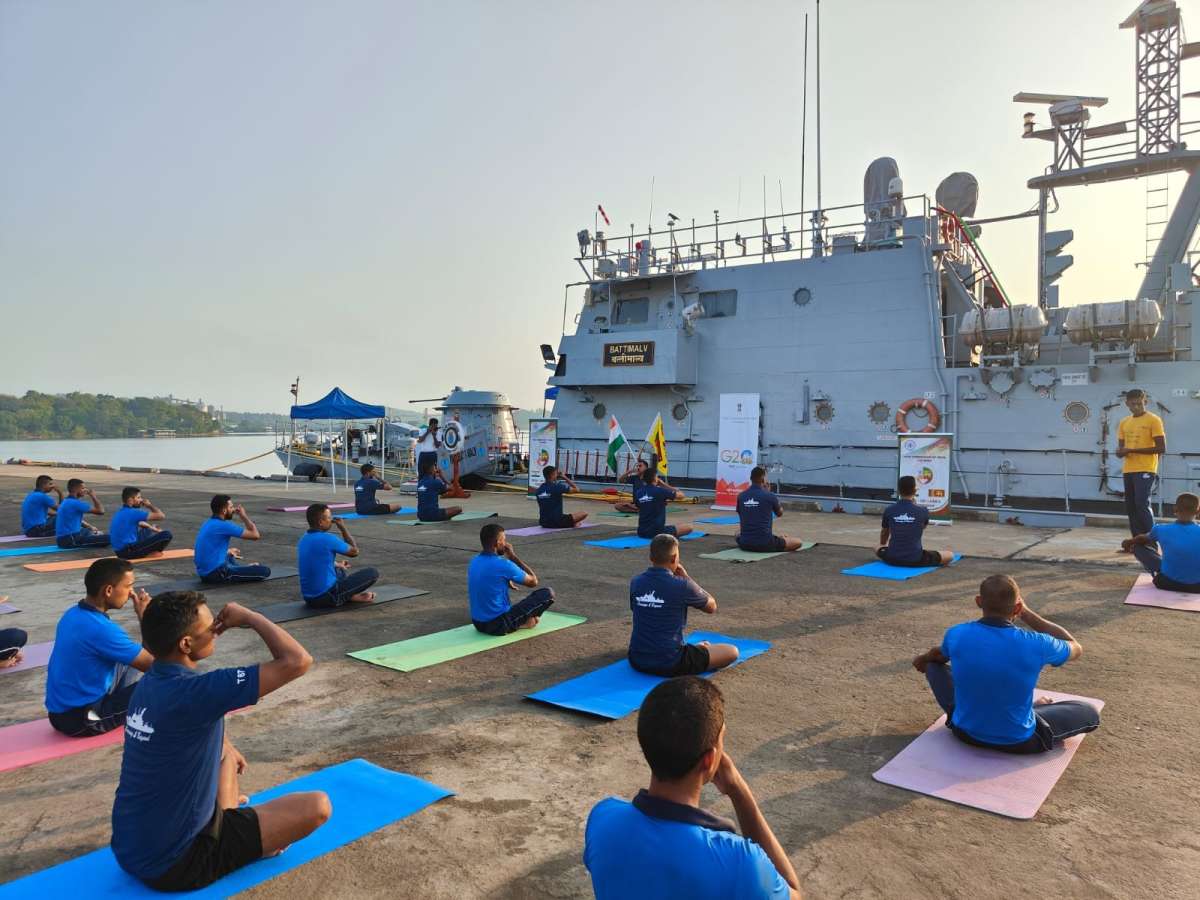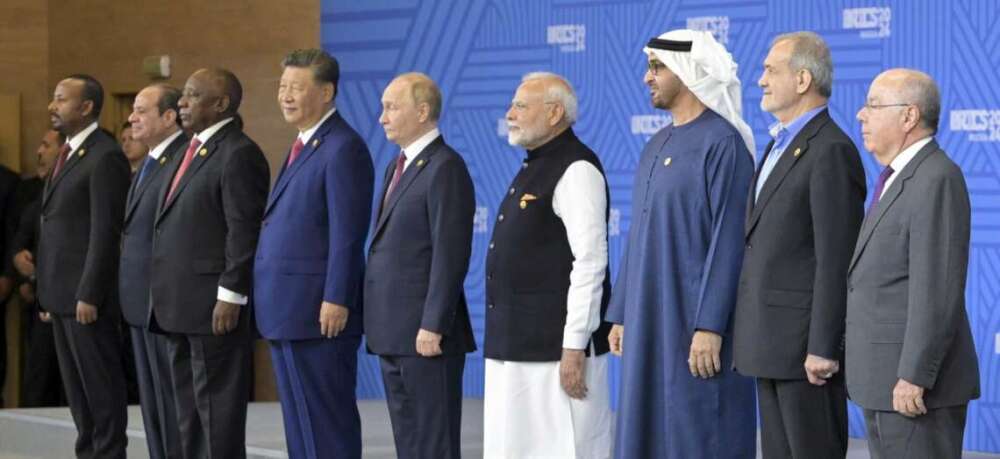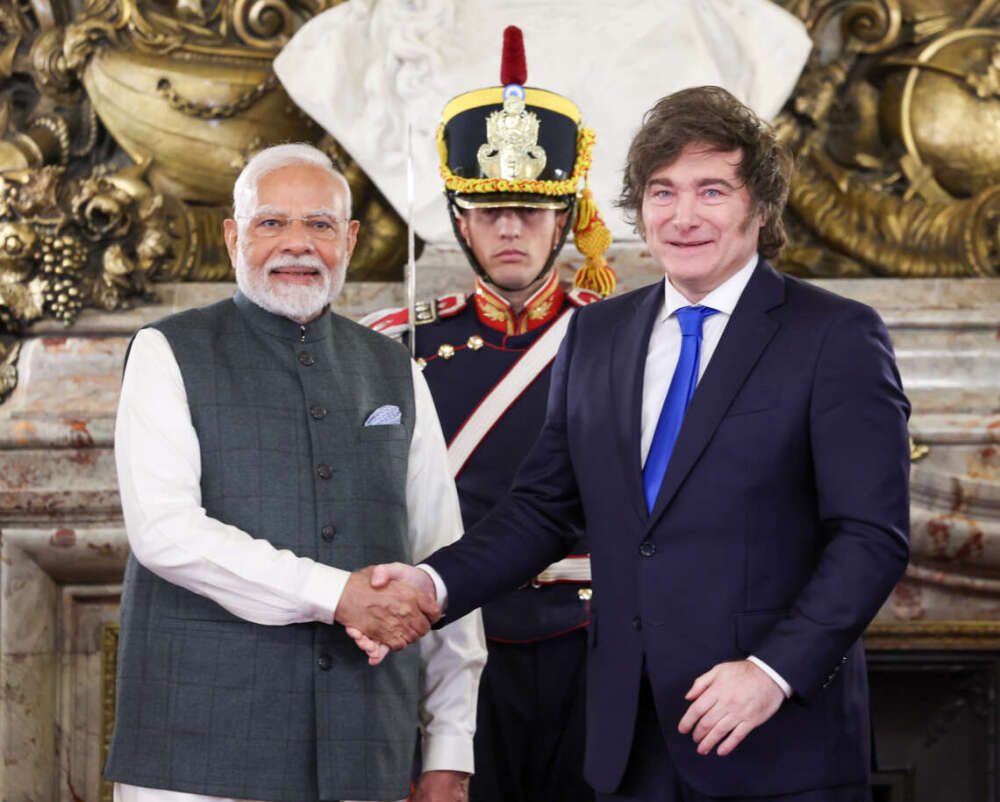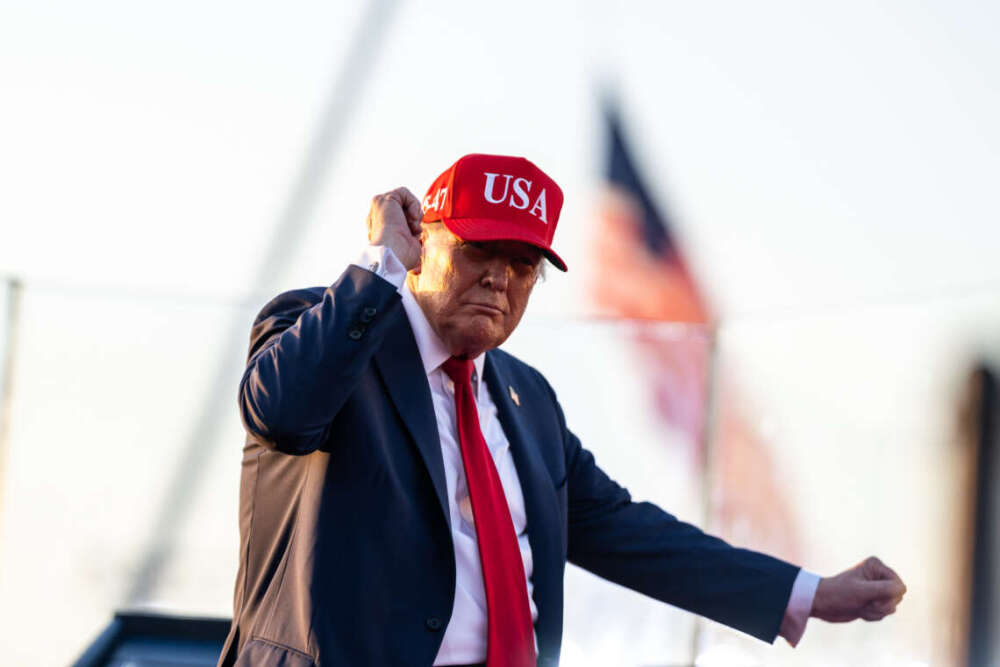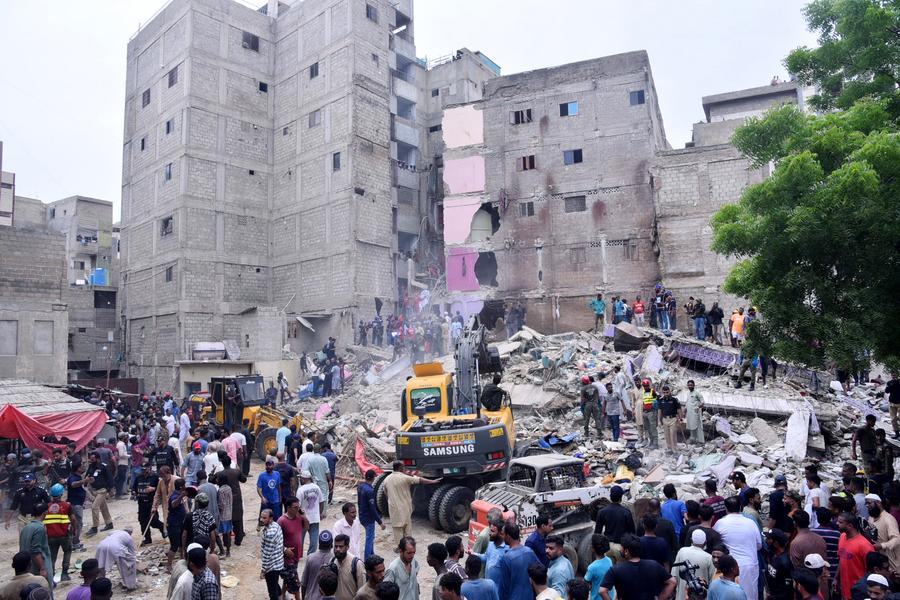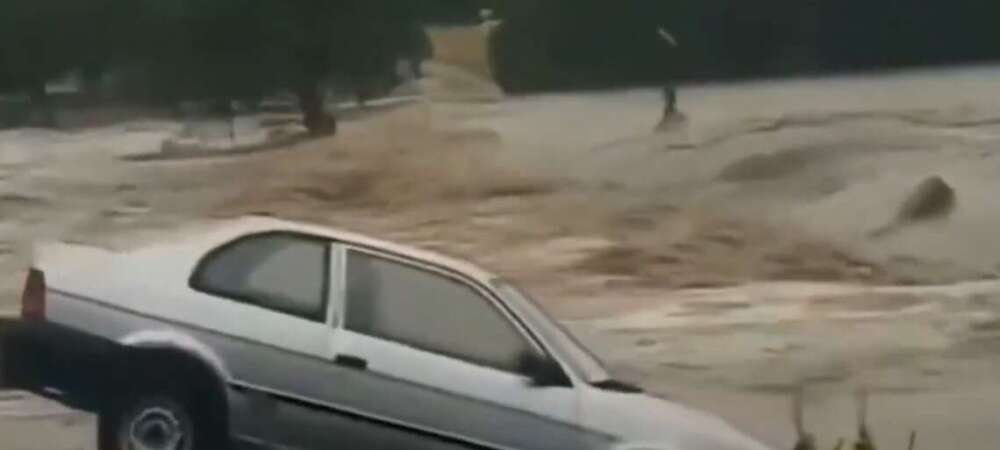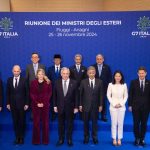It is fitting that Hiroshima was chosen as the location for the G7 meeting, for the chances that the ongoing proxy war between Russia and NATO will enter a nuclear dimension are not zero, or even close to zero….reports Asian Lite News
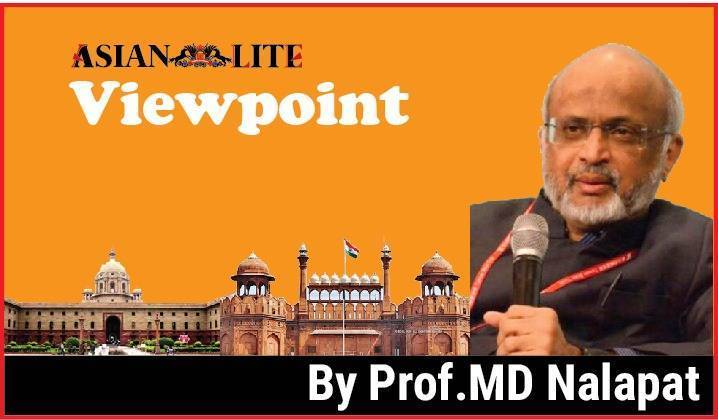
Once, on a visit to Japan. I was asked by my courteous Japanese hosts if I wanted to visit Hiroshima, which is thus far the scene of one of the only two cities bombed by atomic weapons in human history. They were surprised when the offer was refused and instead, a request was made by me to visit a Buddhist temple. At the temple, it was not the usual time for prayers, but in a gesture exemplifying the best of the teachings of the Buddha, the monks prayed in my presence. With eyes closed, I sought to better understand why President Harry S. Truman had deemed it necessary to use the newly created atom bomb to force the leadership of a proud nation to surrender.
Had the war not been cut short by the catastrophe that fell from the skies onto Hiroshima and Nagasaki on 6 and 9 August 1945, it is certain that the Japanese forces would have fought on long after the surrender of Germany on 7 and 9 May 1945. Imbued with the samurai spirit, the Japanese military would have fought on, bringing upon themselves an unprecedented hail of explosives from the skies and the seas as a consequence of the domination by the US Air Force and the US Navy by that stage of the war. This would be apart from the US soldiers, sailors and airmen who would have paid with their lives to defeat Japan.
Many hundred thousand more Japanese than perished at Hiroshima and Nagasaki would have died as a consequence of the prolongation of a war that Japan had already lost, but whose military rulers were refusing to accept the inevitable until forced to Emperor Hirohito, who was devastated by images of those who perished in the two cities bombed by the US Air Force.
This columnist had come across photographs, written accounts and newsreels of the nuclear carnage, and had no desire to have the embers of the emotions stirred by such knowledge, feelings that would once again have burst into flame as a consequence of walking on the same ground that had been the receptacle of “Little Boy”, the nickname given to the first atom bomb dropped on a human target on 6 August 1945. Instead, the alternative chosen was to search for the inner calm, the inner confidence that humanity as a species is inherently kind and not cruel, and this was found in the soothing chanting of the Buddhist monks in a temple in Tokyo that unforgettable day.
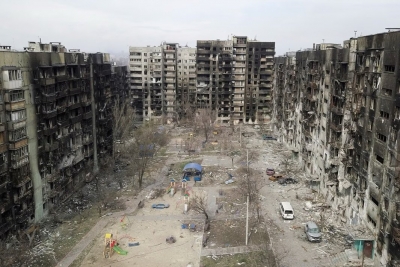
Passing up the chance to visit Hiroshima was the memory which bubbled up when it was announced that Prime Minister Fumio Kishida had decided to host the G7 summit at Hiroshima, a summit to which he invited Prime Minister Narendra Modi of India as well as Australian Prime Minister Anthony Albanese, so that at the least an informal meeting of the four members of the Quadrilateral Security Dialogue could take place. Such a summit not taking place at all would have conveyed a signal of unconcern that would be welcomed only by those powers who were opposed to a free, open and inclusive Indo-Pacific, especially a superpower who was intent on making large parts of those vast water spaces a private lake.
Given the stakes involved in ensuring a resolution of the debt ceiling standoff between the Republicans and the White House, it was understandable that President Biden had to cut short his overseas tour to return to Washington for meetings aimed at finding common ground with Speaker Kevin McCarthy and his party before the month was up. US Senators and Presidents fly far fewer times to locations in Asia than they do to locations in Europe, and this has been particularly true of Biden, who therefore ought to make a visit to Papua New Guinea and Australia soonest, not to forget a long-delayed visit to India. Much of the media in the West is behaving the way “embedded media” did during the 2003 war launched by George W. Bush on Saddam Hussein, and is writing less about the security of the Indo-Pacific than Ukraine as being the centrepoint of attention at the summit.
Since last year, NATO began a jihad against the Russian Federation, pouring men and resources into Ukraine for the purpose. All this is in order for President Volodymyr Zelenskyy to continue his quixotic mission of recovering the territories lost since 2014 to the Russian-speaking Ukrainians who since 2012 were being treated not just as second-class citizens by Kiev but as outcasts. Given the reality of the Ukraine focus of the leadership of the G7 (barring perhaps Prime Ministers Fumio Kishida and Giorgia Meloni of Italy, who however have been keeping their more pragmatic views to themselves whenever Ursula von der Leyen and others at the table have fulminated about needing to make “ever greater sacrifices for saving European civilisation”).
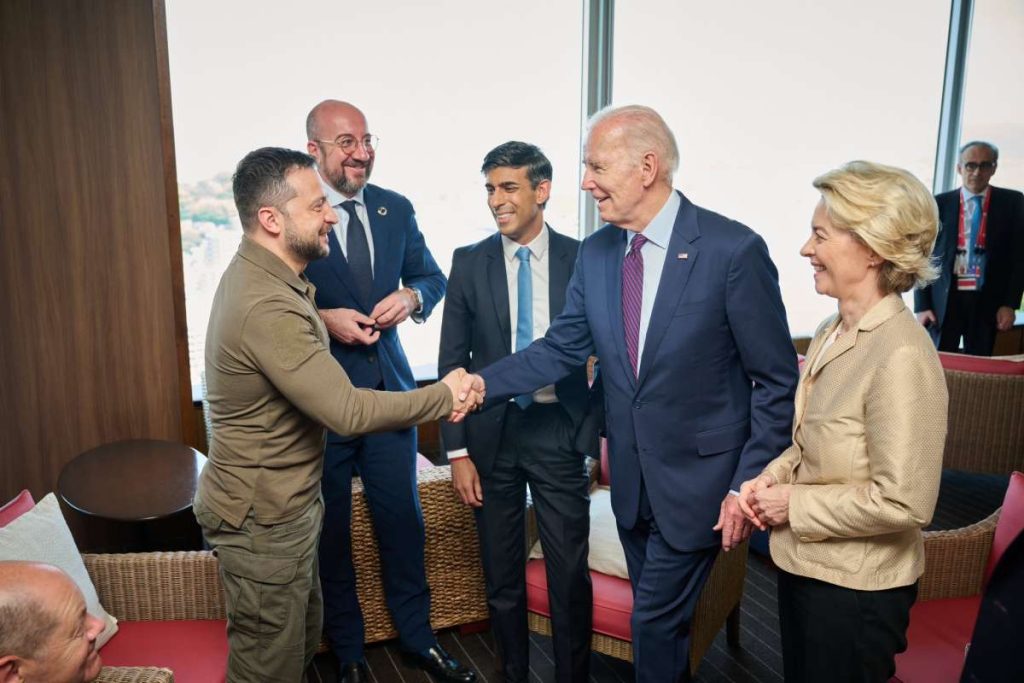
And how better than by assisting Kiev to humiliate Russia on the battlefield? The longer such an effort drags on, the greater the risk that the authoritarian superpower would seize the chance to try and extinguish the sovereignty of some of the countries in the Indo-Pacific either wholly or partially. This would ensue once the public in the West turns against any kinetic involvement in any theatre by their governments as a consequence of the blowback of the impact on their lives of the Ukraine jihad. If George W. Bush had Tony Blair to cheer him on and join in the evisceration of Saddam’s forces in 2003, Joe Biden had Boris Johnson joining him fifteen months ago in launching a course of action in Ukraine that has already created misery worldwide and may yet turn into an indescribable catastrophe.
Apart perhaps from Meloni and Kishida, it is unlikely that the other five leaders at the G7 summit will even realize the risk to overall security of their obsession with Russia. This fixation has come at the precise time when the superpower that is the actual threat has been revealing (and using) its claws more and more often. In part because western media these days resembles outlets in authoritarian states in their uniformity of opinion and coverage, as yet most citizens of G7 member countries do not understand that much of their recent travails have been caused by the actions since the start of 2022 of their leaders. They will, most probably soon.
It is fitting that Hiroshima was chosen as the location for the G7 meeting, for the risk that the ongoing proxy war between Russia and NATO enters a nuclear dimension is not zero, or even close to zero. Perhaps this was the message being sought to be conveyed to his G7 partners by Prime Minister Kishida. In the words of Prime Minister Modi, this is “not an era of war”. Backing an immediate cease-fire in Ukraine would be the best gift that the G7 could give to a world that many believe to be on the edge of a free fall into catastrophe.


